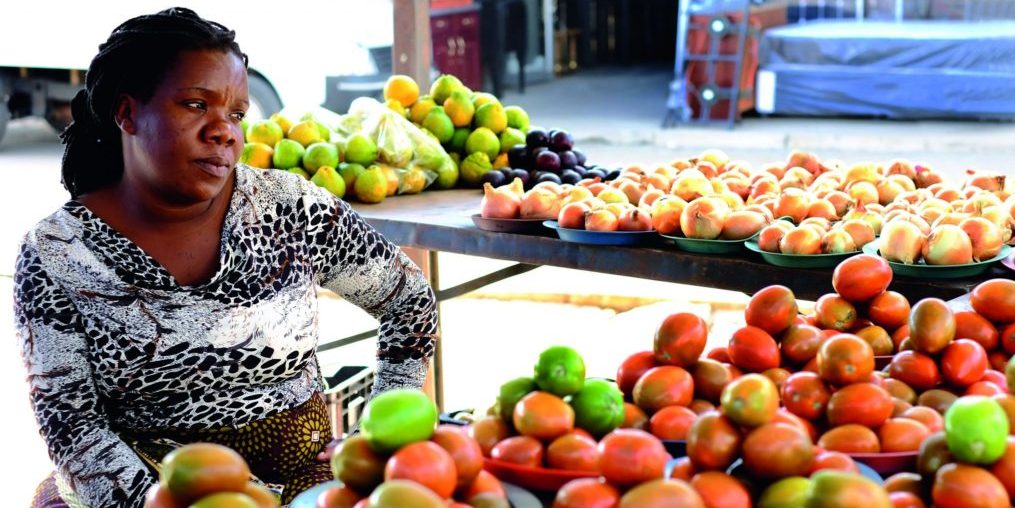It is a Tuesday morning in Rustenburg, the heart of the platinum belt, in the north west of South Africa. On days like this, at the end of the month, this town is usually buzzing with business. The hardship of months of striking at the platinum mines has turned Rustenburg into a ghost town – a poor one at that.
“There’s no business at all here, sales have dropped drastically since the strike resumed in January. We don’t even come close to the business target. Food is going to waste as there are no customers buying. The business has reached its all-time low figures,” laments a restaurant manager who has put her staff on short time.
The manager at this restaurant, who asked not to be named, says because of the long Association of Mineworkers and Construction Union (Amcu) strike she was instructed to reduce her staff’s working hours and pay.
“The bosses are aware of the situation. Generally, a sound business practice is that if you fail to make profit, you either close shop or downsize the staff. I have a fear this will happen if the strike does not end soon. People are suffering; I have a fear that crime will rise because people are desperate to make ends meet. In this shop we also fear for our lives. What if someone walks in armed and demands we hand him chicken,” she says.
At around lunchtime, Marikana Fruit and Veg co-owner, Michael Bendu, was removing rotten bananas from the shelves. He says he hasn’t had a customer all day.
“For me the business is 80% down and I am about to close shop if it continues like this in this month. Electricity, salaries, the rent of this shop and my house are taking their toll. I can’t deal with it.”
Bendu supplies mine hawkers and was making $955 a day before the strike.
“You can stay with me for the day; I promise you will hardly see customers entering the shop. Those who come are not buying in bulk. We can’t carry on like this. I have plenty of credit accounts with my customers but they can’t pay and I understand their plight,” he says.
Bendu often ends up giving away his fruit rather than see it rot.
“Here we survive by mineworkers. The mines are the backbone of our economy. I don’t know what will happen when the backbone collapses,” Bendu.
A few hundred meters from Bendu’s shop stands Marikana Wholesalers, operating since 2006, a stone’s throw away from where miners camp.
Owner, David Neto, says he lost around $955 though rotting food in March alone. In the past, he used to lend money to his hard-up workers but he can’t afford that anymore.
“I am at my bones. I can’t afford to further cut down the prices. It doesn’t make business sense,” says Neto.
“My staff is currently on flexi-hours. I have to force them to take leave, taking advantage of the poor business. The current situation is hurting everyone, I can’t afford a fulltime domestic worker anymore and I need a plumber but I can’t call him. The situation is creating all kinds of nonsense. Everyone is desperate these days. Taxis are forcing passengers off buses. It’s chaos here. My turnover is half of what it used to be. It is painful that I am paying my workers to look at passing people and watch the sun turning,” says Neto.
The taxis that ferry thousands of miners are also feeling the pain.
“Business is bad; the strike is the worst in the history of platinum mines. These are the days we would be seen busy but people are not using our services. This strike must come to an end because the banks will repossess our taxis as we are failing to pay our debts,” says Mojalefa Rantoa, a taxi driver.

On the side of the road, two Mozambican hawkers, Gina Javana and Julia Makwakwa, watch their pile of spinach and tomatoes rot, along with their dreams.
“Worst time ever. We are so despondent. We came to Marikana to make ends meet but now we don’t know why we should stay when things have turned this bad. We couldn’t return home in December and Good Friday is here. We have no means to see our families, we are stuck here,” says Makwakwa.
Godfrey Jakaya, a 30-year-old Tanzanian herbalist, says in his five years in Marikana it’s never been so bad. He has had to move to a smaller shop to save rent.
“The business is not doing well, my family is living off my savings but it’s drying up. I am just glad my two children are too young to understand what we are going through with my unemployed wife. No more KFC (Kentucky Fried Chicken) meat for them.”
The strike has led to increased violence in the area. Business owners are the targets of robbers who are desperate to get their hands on their stock. Some striking miners have also been involved in clashes with police and workers on their way to the mines.
It has been tough on the strikers, who used to earn around $400 a month, as well. A group of striking Amcu members is seen walking aimlessly in the market area.
“Our landlords are on strike as we are. They understand we can’t pay as we are not earning a penny. But we have an understanding that we hustle for electricity and that’s all we can manage,” says one striker, who refused to give his name.
If the strike is still on when you read this, the hustle of Rustenburg can only get worse.
